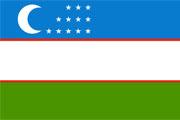February 9 is the birthday of Alisher Navoi, the glorious son of the Uzbek people. This date is annually widely celebrated in all cities and regions of the country. In Tashkent, the poet’s admirers, as usual on this day, will gather at the foot of the majestic monument to Alisher Navoi, which is located in the National Park of Uzbekistan named after him, to pay tribute to the great ancestors.
The biography of the talented poet and an outstanding thinker has long attracted the attention of many historians and orientalists and literary critics. The whole works are dedicated to its research; even schools of Navoi stydies are established. But the relevance of the study is not reduced over the time, because every Navoi’s work deserves volume analysis. His poetics is extremely interesting, diverse with techniques and attitudes are an unusually progressive.
He was born in 1441, Herat, one of the main cultural centers of the East at that time, and since childhood absorbed the beauty and refinement of literary language Farsi, Alisher very early realized his mission to become the founder of Uzbek literature. While studying at school, he was fond of reading poetry, especially admiring the lines of Saadi’s “Gulistan” and “Bustan” and Farid ud-Din Attar’s poem “The conversation of the birds."
The future governor of Khorasan Hussein Baykara was among Navoi’s schoolmates, who came to power in 1469. The years of his reign were a time of flourishing of Uzbek literature. The Sultan himself contributed a lot to it; he was a poet, author of interesting gazelles. Since that time, a new stage in the life of Navoi had begun. He was actively involved in the country’s political life. At the same year, the governor of Khorasan appointed Navoi to the position of Keeper of the state’s seals (muhrdar), and Vizier in 1472. Being on this position, he made a great contribution to cultural and scientific intelligentsia of the country.
The poet on his savings erected over a hundred objects in Herat and other cities, including madrassas, mosques, baths, bridges, khanaka, hospitals, bazars, developed many of the streets. The great poet, a wise statesman was fully connected with the people only and lived with his dreams and concerns. In particular, he directed most of the own funds to charity.
In 1487-1489 years, Alisher Navoi had served as head of the city Astrabad then returned to Herat. Since then, a new era began in the poet’s life; he was more concerned with creativity. The bulk of his works was created during this period.
Navoi wrote his greatest work “Hamsa” (“Quinary”), which consists of five poems – “Abrar ul-Khairat” (“The confusion of the righteous”), “Farhad va Shirin” (“Farhad and Shirin”) “Layli va Majnun”, “Sabai Sayar” (“Seven Planets”) and “Saddi Iskandari” (“Wall of Iskandar”) in 1483-1485. They were created on the basis of tradition hamsawriting - creating Pyateritca (five poems). Navoi’s “Hamsa” became the first work in this genre, created in Turkic language. He proved that you can create a dimensional work in the Turkic language.
Navoi tried almost all popular genres of the East literature, and showed that he had his voice and style. Alisher Navoi lifted Uzbek literature to a new high pedestal through his poetry. In 1498, he compiled a collection of his poems entitled “Hazain al-Mahon” (“Treasury of thoughts”). All the poems of this collection have a volume of more than 50 000 lines.
Treatises “Muhakamat-ul-Lugatayn” and “Mizan al-Awzan” are considered as Priceless scientific works of Navoi, in which he examined versification, linguistics, and then on the basis of his research convincingly proved the Turkic language’s benefits and richness. Navoi also created scientific works. They include the works of literary criticism “Majalis al-nafais” (“Collection of refined”), “Mezan al-Awzan” (“Libra size”) on the theory aruz, “Mufradat” on the theory of muamma genre. He also wrote treatises on historical subject “Tarixi muluki Ajam” (“History of Iranian kings”) and “Tarixi anbiya va hukam” (“History of the prophets and the sages”). The latest work of Navoi is “Mahbub ul-qulub” which expressed his views on social and political topics.
Thus, Alisher Navoi was the first outstanding poet who discovered colorful, unusually shaped world, the world of the Uzbek language, its richness and elegance. This world was captured in considerable legacy of poet and thinker - nearly 30 poetry collections, major poems, prose, and scientific treatises.
Alisher Navoi’s creativity is still of interest throughout the world, it is evidenced by the works of the great poet which are ctranslated into English, French, German and many other languages. Deep philosophy of his work, rich in metaphor, a variety of poetic images attract the fans of literature. In other words, the secret of undying fame of Navoi’s works lies in their high artistic level.
During the years of independence, Uzbekistan has paid special attention to the detailed study of the poet, publishing his works. At the initiative of the Head of State the Year of Alisher Navoi was declared in 1991. The complete works of the poet were published in twenty volumes. Numerous majestic monuments of our ancestor were built over the past period in the country and abroad. A large number of international conferences, devoted to the works of Alisher Navoi were held in the republic, as well as in the countries such as France, Belgium, Japan, Russia, USA, Germany, Kazakhstan and many others
Muhammad Ali,
Chairman of Writers’ Union of Uzbekistan,
People’s writer of Uzbekistan


